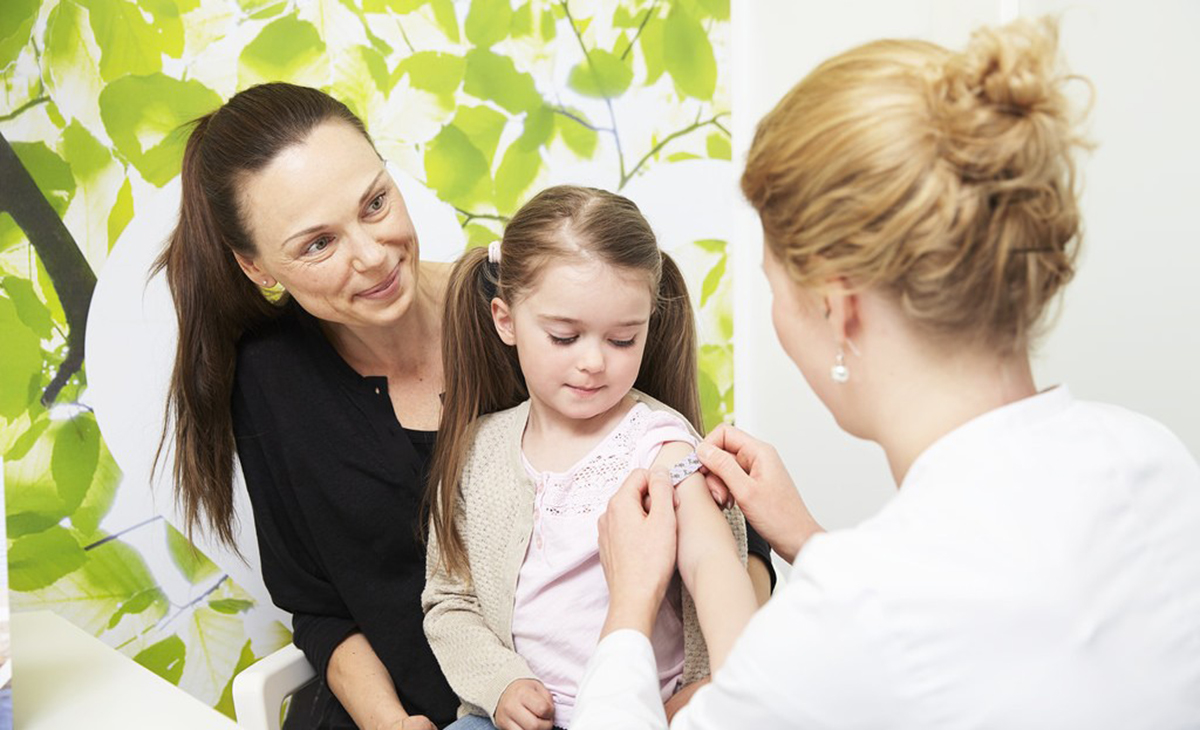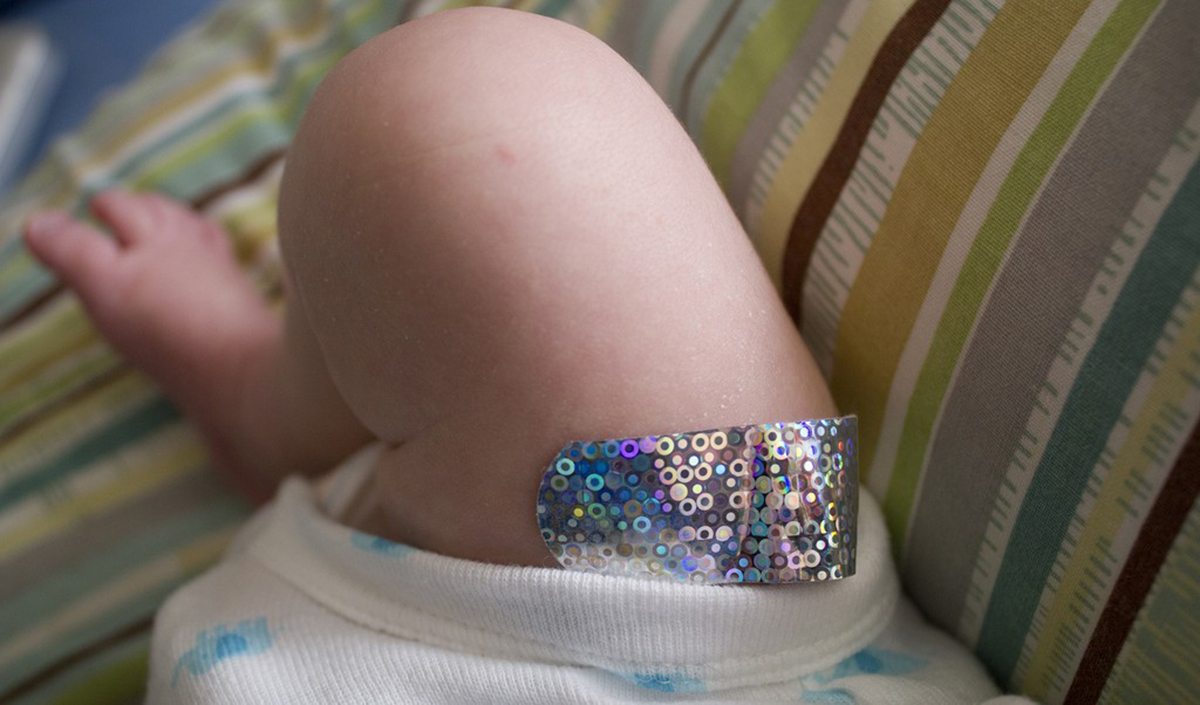India was officially declared polio-free this year, in one of the most remarkable global health successes of recent times. The disease crippled more than 200,000 people a year when the polio-eradication initiative was started back in 1988. The polio-eradication program was a huge success in the end, but there were many problems along the way. Poor sanitary conditions and many people living in close proximity made India one of the toughest battle grounds against polio.

Why Would You Say No To Vaccines?
Those factors weren't the only obstacles, however. Some Indian parents simply weren't sure that they should have their kids vaccinated. Vaccine rejectionists certainly have an increasingly visible internet presence, and books on the "dangers of vaccines" grace many Western book stores and libraries.
Western parents are more likely to question the safety of childhood vaccines now than they were decades ago, and geographical pockets in the United States in which larger numbers of parents say no to immunizations have already been subjected to outbreaks of whooping cough and measles. These parents are concerned about vaccines for a number of reasons, which can be summarized as follows:
- Vaccine ingredients, including thimerosal, aluminum, and squalene might cause devastating immunological and neurological effects.
- Vaccines have been linked to autism.
- The ever-growing list of vaccines on the official schedule might overload the immune system, leading to all kinds of potential problems.
- Vaccine-preventable diseases aren't usually that serious and can easily be treated with modern or alternative medicine.
- Natural immunity from the disease is more desirable than artificial immunity from the vaccine.
- There is no evidence that vaccines led to the decline in vaccine-preventable diseases — more sanitary conditions and the natural death of these diseases might be responsible instead.
Dr Sunita Khatri from India explains: "As an Indian, one frequently encounters people suffering from polio. When you see a young child limping as a result of a disease which could easily have been prevented, you realize the importance of vaccines. As a doctor, I repeatedly urge my patients to get their children vaccinated. But India is a country where many people are uneducated and poor. They attribute polio to 'bad karma'. Visiting a doctor to get the child vaccinated often means a loss of a day’s wage. Therefore, people often skip vaccination."
Dr Khatri describes how the Indian government overcame these challenges. "Health workers have identified households with children less than five years of age," she explains. "The workers visit these houses every month on a set date and administer polio drops to the children. People are happy as they don't have to make to extra effort to get their children vaccinated. Most of the children in India, under the age of five, have been receiving polio drops every month. As a result, the widely rampant polio disease saw a decline and has been finally abolished from India."
See Also: Are Western Parents Bringing Back Scary Diseases By Rejecting Vaccines?
So, what does Dr Khatri say about Western vaccine rejectionists? "I know that many Western anti-vaccine advocates opine that improving sanitation can prevent these diseases," she says, adding that this may indeed make outbreaks less likely but her country's limited resources are better spent directly combating diseases through vaccines.
She concludes: "As a doctor, I tell parents to vaccinate their children against major diseases like polio, tetanus, diphtheria, whooping cough, measles, mumps, rubella and hepatitis. These vaccines are available in all government hospitals either free or at a very subsidized rate. Vaccines against typhoid, chickenpox and many other diseases are also available in India. But not all parents can afford them. However, they should opt for them if they can."
Vaccine Rejectionism: A First-World Disease?
Dr Khatri's brief description makes it clear that a lack of education and financial resources are the most common reasons Indian parents don't vaccinate their children. The picture in the West couldn't be more different. Is vaccine rejectionism, like obesity, a first-world luxury disease?

Voices For Vaccines is a parent-driven organization supported by scientists, doctors, and public health officials that provides science-based information about vaccines and the diseases they prevent in clear language. This project was born from the observation that the loudest voices in the so-called "vaccine debate" come from those opposed to vaccines. There is a real need to counter the misinformation presented all over the internet with real, evidence-based information.
Just why do Western parents question childhood vaccines? "The thought of vaccinating their baby is daunting for many parents," Karen Ernst from Voices For Vaccines told SteadyHealth. "Their babies seem perfect and the idea of a painful injection seems almost cruel — after all, it will hurt. Since these parents are not faced with the immediate threat of disease, the threat of the injection looms bigger in their minds. After all, most parents of babies have never seen measles, polio, rubella, diphtheria, and so forth."
While they may remember some childhood diseases from when they were younger, they may not have seen the debilitating complications that can come with these diseases, Ernst adds.
"They are encouraged to learn about the ingredients, but in doing so, they are faced with more misinformation than solid information. The list includes multi-syllabic words that ring a faint bell from school science labs long ago, but plenty of websites will gladly connect these ingredients — some real and some imagined — to all manner of threat and danger without any evidence."
Internet Misinformation: A Real Danger
Indeed, a study conducted by Anna Kata, a professor of anthropology at McMaster University, showed that a full 100 percent of anti-vaccine websites she investigated contained factually incorrect information. Popular anti-vaccine websites make completely unfounded claims, including:
- Vaccines are poison. (Despite the fact that ingredients that could be toxic in large quantities, such as formaldehyde, don't appear in vaccines in quantities that are toxic to humans.)
- Vaccine ingredients cause illnesses ranging from autism and diabetes to cancer and AIDS.
- Vaccines are a conspiracy to keep pharmaceutical companies in profits.
- The general public is deliberately kept from real information about the dangers of vaccines.
- Vaccine-preventable diseases are not dangerous.
After being bombarded with claims like those, it's "easy for parents to get the risks and benefits of vaccines turned upside down," Karen Ernst says. "Take a vial of something they don't understand and couple it with disease rates that are low or non-existent — thanks to vaccines — and parents think refusal is the smart choice. But as I said, this is risk analysis turned on its head. Measles is everywhere in our world. It kills over a dozen people every hour in the world."
See Also: Why Parents Should Still Say Yes To Childhood Vaccines
The simple fact is that the science behind vaccines is terribly hard to understand. A true understanding requires all kinds of knowledge — about the immune system, chemistry, diseases, how epidemics occur, and indeed higher mathematics. As a parent, I'm the first to admit that I don't understand these things enough to make a truly informed decision on my own.
That leaves a fairly crude decision-making process, then. The fact that scientific consensus considers the risks of vaccine-preventable diseases to be greater than the risk of vaccines is an excellent starting point. I concluded that vaccine-preventable diseases killed and permanently crippled many more people than vaccines do today. Therefore, vaccinating is a safer choice. It will only remain so as long as vaccination rates stay up, because herd-immunity is real. By not vaccinating, parents put others at risk as well as their own children.
- Photo courtesy of Apotek Hjartat by Flickr : www.flickr.com/photos/apotekhjartat/14270943121
- Photo courtesy of Quinn Dombrowski by Flickr : www.flickr.com/photos/quinnanya/11472596804


Your thoughts on this